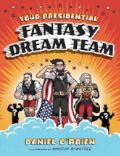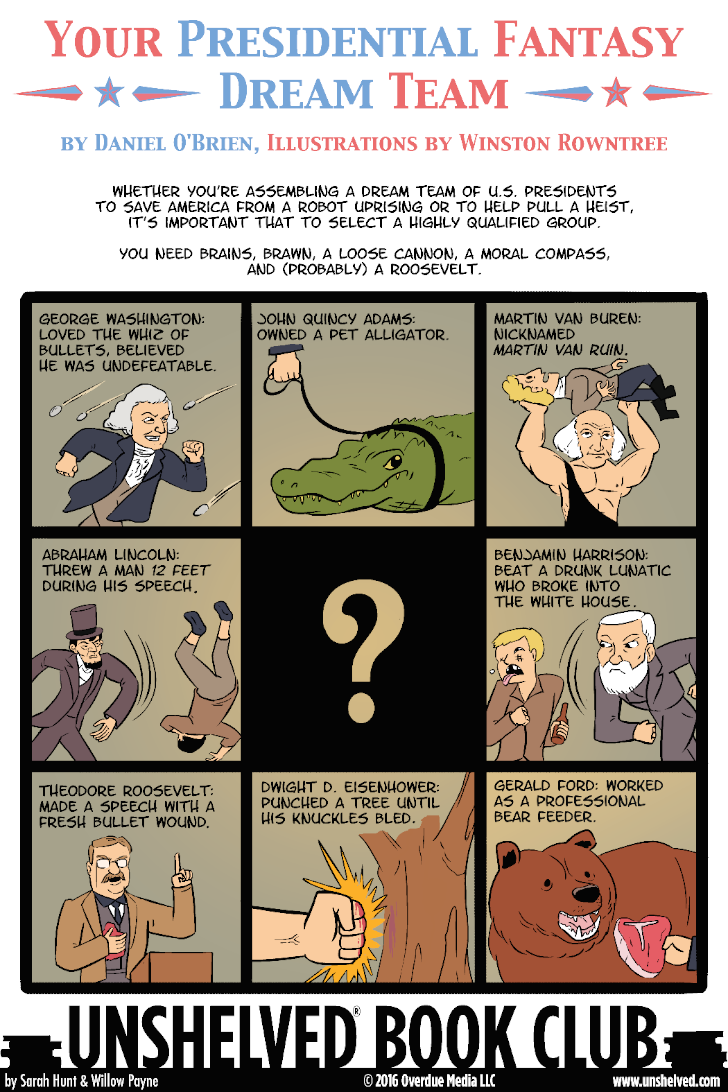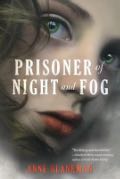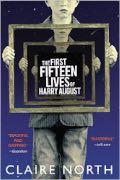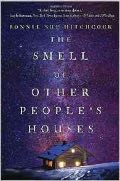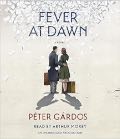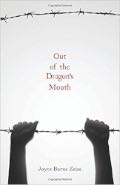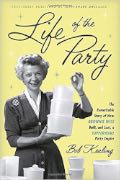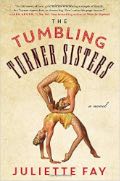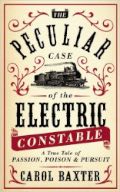Link to this review in the form of a comic strip by sarahhunt tagged history • biography
Link to this review by sarahevans tagged coming of age • historical fiction
Prisoner of Night and Fog
In 1930s Munich, teenager Gretchen Müeller has lived under the protection of her Uncle Dolf ever since her father took a bullet for Adolf Hitler nearly a decade before. But her world begins to unravel when she meets a young, handsome, and very Jewish reporter named Daniel Cohen. Daniel believes her father was actually murdered. Is Gretchen strong enough to uncover the truth about those closest to her?
Conspiracy of Blood and Smoke
Safe in the warmth of an English family home, Gretchen looks forward to becoming a psychiatrist and staying close to her beloved Daniel. He returns to Germany after hearing news of his cousin’s brutal beating. When Gretchen receives word that Daniel is wanted for murder, she goes after him, even though it may mean facing the man of her nightmares, Adolf Hitler.
Why I picked it up: I read on the back that the heroine’s family were members of the Nazi elite. I wondered how the author could convince me a girl raised with that worldview would turn away from it.
Why I finished it: Blankman made it believable. Intelligent and observant, Gretchen managed to survive the crushing poverty of Weimar Munich as well as the unpredictable cruelty of her older brother. As she begins to question the status quo, she can see that her dream of being a doctor does not fit within the Nazi party views on women and her role as one of Uncle Dolf’s “pets.”
By the end of the first book, I had such affection for Gretchen and Daniel that I was eager to pick up the second and find out how they fared. I was impressed when the author tackled potential problems in their relationship, such as the fact that he can’t find enough work in England and that tying his future to a gentile impacts his relationship with his family. Young adult literature so rarely goes beyond “happily ever after” that it was refreshing to encounter realistic relationship dilemmas.
It’s perfect for: My dad. Blankman’s writing has the pacing and tone of a great 1940s thriller. Reading it reminded me of staying up late on Friday nights to watch old movies with him.
Link to this review by jordan tagged science fiction • historical fiction • mystery
Every time Harry August dies, he finds himself reborn at the beginning of his life, in the same place and time as before. Each of his lives is fairly straightforward, even normal, until the end of his eleventh life when he receives an ominous message. The world is ending, and only someone else like him could be responsible. To protect the future, Harry has to stop a plan that crosses the centuries, all while trying to dodge a death that could be his last.
Why I picked it up: I saw it on not one, but two best books lists.
Why I finished it: This book toys with genre effortlessly. It is part historical fiction, part hard science fiction, and part mystery with hints of dystopia throughout. North wraps it all up in one elegant and suspenseful package that alternates between intensely personal details — Harry’s private triumphs and tragedies, collected over 800 years — and an earth-shatteringly large conspiracy.
It’s perfect for: James, who would be drawn in by the thorny philosophical questions that come with knowing the future, and who would stay for the well-researched physics in the later part of the book.
Link to this review by darcy tagged historical fiction • coming of age
In Alaska in 1970, four teenagers tell the story of their town before and after Alaska became part of the US. Ruth has a secret that makes her grandmother send her away. Hank and his brothers stow away on a ferry in search of a better life. Alyce wants more than ever to audition for ballet, but instead must spend the summer on her dad’s stinky fishing boat. Dora, usually the unluckiest of them all, wins a cash prize she has to keep from her mother and father so they don’t spend it all on liquor.
Why I picked it up: I had no choice. Three separate people gave me the advanced reader copy knowing this was the book for me because of its quirky title and the fact that it’s told in multiple voices.
Why I finished it: It’s a study in opposites — rich and poor, Natives and whites. Everyone longs for a better life but knows they’re trapped in their small town. I loved that the description of the smells of people’s houses (cedar for the rich boy’s fancy house, the moldy scent as a symbol for guilt and sin in the poor girl’s house) somehow defined them. Scents were so richly described, from the coffee to the smell of Joy soap, that they almost became characters. And right up until the very end I was enamored by the intertwining stories of teen pregnancy, drunk and abusive parents, and the need for new beginnings.
It’s perfect for: My sister, Gayle. Not only is she an Alaska resident she will love the plot twists and minor quirky characters such as the Dancing Man who dances the day away out on the corner. There was a dancer in our own hometown years ago who would bust out his moves on busy streets. He always made us laugh, and I think she will feel the same connection I did to the character. Gayle is also a dyed in the wool thrift store shopper, and she will truly relate to the thrift shop in the book, which is one of the main settings.
Link to this review by dawnrutherford tagged audiobook • romance • biography
Péter Gárdos retells the story of his parents’ unusual romance, based on the letters he discovered after their deaths. Both were Hungarian Jews, saved from concentration camps and brought to Sweden. His father Miklos had serious tuberculosis, and the doctor gave him six months to live at most. Rather than resign himself to his grim fate, Miklos obtained a list of all the Hungarian girls from the region around his hometown who were also in Swedish hospitals and wrote letters introducing himself to all 117 of them. One of them became Péter’s mother.
Why I picked it up: I’m a huge fan of letter writing, but can’t imagine an entire relationship formed via the mail.
Why I finished it: I’ve seen photos of Nazi concentration camps, but I never really thought about what happened to the people in them after they were freed. Not only did the few who survived have terrible health problems, but they had no way of knowing if any of their loved ones were still alive. Miklos’s lungs were a mess, he had terrible metal dentures that made him look like a monster, and he was told he would die, yet still he not only yearned for love, he worked hard to find it.
Readalikes: Another book that broadened my understanding of WWII, with a nice bit of romance mixed in, is Land Girls by Angela Huth, the story of three young women recruited to England’s Women’s Land Army, an organization that made sure farms could keep running after the men were drafted away. The city girls were completely unprepared for the hard work involved, but compelled by duty, they made the best of it and found that it had its charms, too. Like Fever at Dawn it gives a sense of how war changes the lives of people away from the front lines.
Link to this review by wally tagged historical fiction • coming of age
The Vietnam War has ended, and Mai’s family sends her to America. On a boat to a refugee camp near Malaysia, she meets her uncle Hiep, who helps her protect herself from soldiers looking for bribes and worse. At the camp, she meets a distant relative, Small Auntie, who seems helpful at first, but demands payment for everything. When Small Auntie’s husband is killed in a collapsed well, she blames Mai and Hiep. They are forced to move to another part of the island where Hiep becomes deathly ill.
Why I picked it up: My middle school librarian is promoting this book to her students.
Why I finished it: I liked that Mai was imperfect. She is insecure and looks to others to make things better for her. She is afraid for her future, misses her family, and doesn’t know how to handle Small Auntie’s anger. Her friendship with Hiep and others helps her to grow up and become more self-reliant.
Readalikes: Vietnamerica by GB Tran, a memoir which tells the painful story of how his parents survived the aftermath of the Vietnam War and made their way to America.
Link to this review by flemtastic tagged history • biography
Reclusive inventor Earl Tupper created a way to use the huge amount of plastic left over from WWII to make brightly-colored, pliable plastic bowls that could save food from spoiling. Yet after being introduced to the market, his product languished on the shelves in stores because their selling points needed to be demonstrated. Enter Brownie Wise, a divorced single mother who set up the famous Tupperware distribution system of selling exclusively through home parties. Women, fresh from working while men were at war, jumped at the chance to empower themselves by becoming distributors and managers in a quick-growing business. Tupperware saw explosive growth, and Brownie Wise was at the center of it all. But after seven years, Tupper became so jealous of the attention focused on Wise that he fired her.
Why I picked it up: Direct selling like this originated with Stanley and Fuller Brushes, but Brownie Wise had the idea for selling parties. She was a successful businesswoman in an era when only men were managers.
Why I finished it: Earl Tupper was banking seven million dollars a year at the end of Brownie Wise’s employment, yet he felt the company needed to go in a different direction. Kealing does a good job of showing the growing discontent between Wise and Tupper, who were not afraid to have knock-down, drag-out fights.
And it was fun to see how crazy things got. Once the company’s sales model was successful, there were huge meetings of dealers and distributors that became over the top parties where top sellers got cars or trips around the world. One ended in disaster. Because it was held on an island, there was a fleet of small boats to take people back and forth from the mainland. Quite a few boat captains were drinking before they tried to motor back to the land in the dark, with overcrowded boats, in a storm. Several party-goers were injured, and the company faced lawsuits over it. (Because Brownie was in charge of the party, Tupper used this incident to fire her.)
It’s perfect for: I’m going to give it to my mother. She grew up in this era and sat in on many Tupperware parties. This would be a blast from the past for her. Also, on a more serious note, my grandmother was in the same boat as Brownie Wise — a single mother on the run from an abusive husband. My mom would identify with Brownie’s determination to find a job that would put food on the table.
Link to this review by diane tagged historical fiction • coming of age
The Turner family never had much money. Like most Americans in the early 20th century, they were just getting by. When Mr. Turner injured his hand and could no longer work as a boot stitcher, they were on the brink of losing everything. But Mrs. Turner had a plan — vaudeville! She organized her four daughters into a tumbling act, and they headed out on the circuit. In the voices of two of the girls, this is the story of the ups and downs of life on and off the stage.
Why I picked it up: I’ve always been fascinated by entertainment in the early 20th century, so when I was offered an advance copy on NetGalley I jumped at the chance to read it.
Why I finished it: The girls are all full of spunk. One is more bookish, content and introspective, while the other is more unsettled and just waiting for the chance to show her personality. As the family struggles to break into show business, I enjoyed the seedy theaters, back-biting performers, swindling theater managers, and the other colorful characters that populated the novel. I cringed at Mama Ethel’s schemes to control the girls and their careers, laughed at the girls’ slapstick attempts to perfect their act, and cried over the sweet, sometimes romantic relationships the girls built with other performers. And as a fan of old movies and vaudeville entertainers, I loved their encounters with some soon-to-be stars like Archie Leach (before he was Cary Grant).
Readalikes: Sara Gruen’s Water for Elephants, set in the same time period, tells the story of life in a traveling circus. Both focus on the lives of the actors without sacrificing historical context and provide a chance to experience the “smell of the greasepaint and the roar of the crowd.”
Link to this review by robert tagged history • mystery
On the first of January, 1845, the Great Western Railway’s Paddington Station received a telegram from Slough Station stating a murder had been committed at Salt Hill, and that a suspect “in the garb of a kwaker” had purchased a first class railroad ticket to London. This was the first time a telegraph message led to the capture of a killer. The Wheatstone and Cooke dial-readout telegraph system (which, unlike the Morse telegraph, had no provision for the rarely used letter “q”) startled a railway constable into pursuing the suspect far outside the officer’s jurisdiction. When confronted, the man blandly asserted he was beyond suspicion. The authorities soon learned John Tawell was not a prosperous and somber Quaker but a convicted forger who’d been transported to Australia. Victim Sarah Hart, poisoned by cyanide, was Tawell’s mistress.
Why I picked it up: I’m a fan of both true crime and books about the history of technology.
Why I finished it: The forensic science of the time was crude: Sarah Hart’s stomach contents were stored in one of her own pickle jars. The expert witnesses gave confusing testimony filled with conflicting units of measure (grains, drams, drachms, pennyweights, and so forth). And there was also the known incompetence of the traveling hangman who eventually ended Tawell’s life.
The descriptions of Tawell’s rise from convict laborer to free professional and landowner in Australia illuminated life in that distant penal colony. And I learned details of the rigorous propriety instilled in Quaker communities at that time. In fact, Quaker influence had kept Tawell from being executed for forgery decades before he committed murder.
Readalikes: Charles Dickens’ novel Great Expectations features, among its characters, a convict transported to Australia. Erik Larson’s Thunderstruck is about the infamous Dr. Crippen, the first murderer caught thanks to radioed messages. And if you’d like to learn how telegraphy changed the world, you’ll like The Victorian Internet: The Remarkable Story of the Telegraph and the Nineteenth Century’s On-Line Pioneers by Tom Standage.
